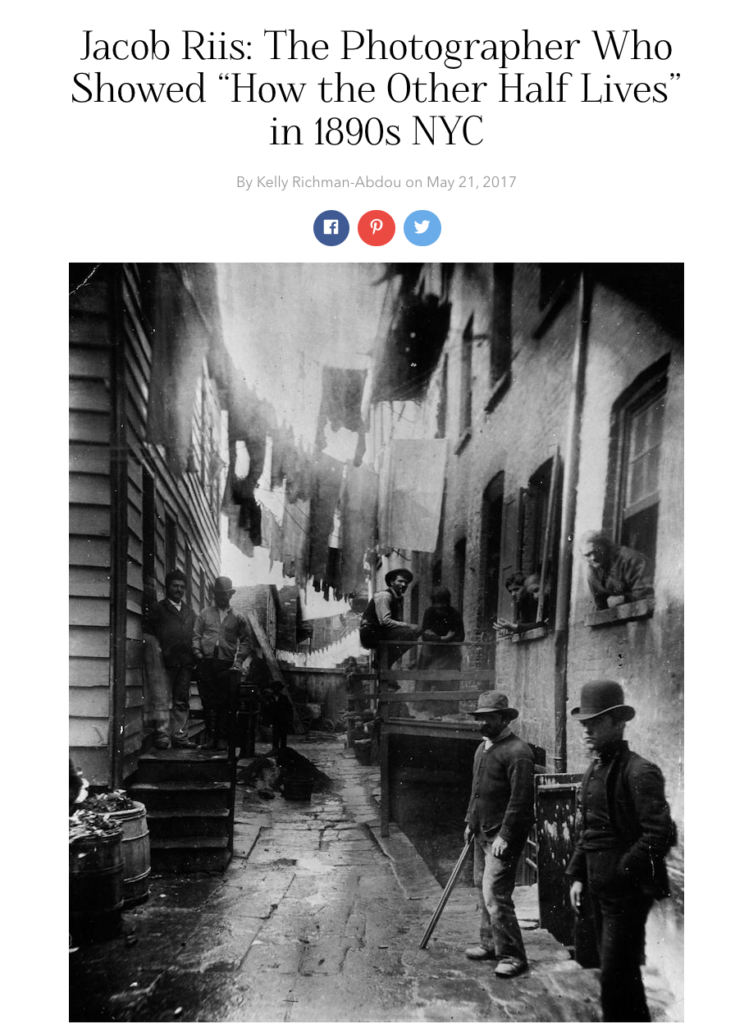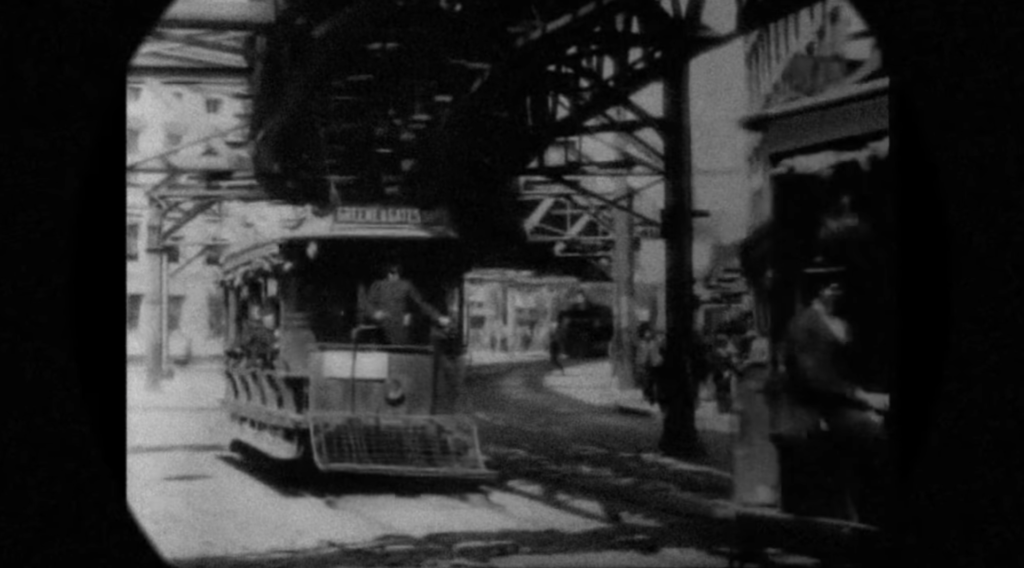In this course, our eleventh grade focuses on the Jazz Age and New York City in the early 20th century, examining this period through the lens of literature, photography and historical texts, and through a week-long class trip to NYC (pre-pandemic).
Our course began with a study of the early history of New York, and a reading of Langston Hughes’ autobiography, The Big Sea. We considered the history of New York City in the late 19th and early 20th centuries, with a special focus on immigration and the development of the city, and we looked at the Harlem Renaissance, with a particular emphasis on Langston Hughes’ poetry. This class also included a trip to New York, and a journal of assignments and reflections from the trip. Additional components of the course include Fitzgerald’s The Great Gatsby, and readings and discussions around Flappers, the Jazz Age, and the end of this era in the city, brought about by the Great Depression.
Lecture
Reflection Assignment
Read the following article: Jacob Riis: How the Other Half Lives
View the film: 1896-1901: Visual Tour of New York City
Describe one of Riis’ photographs in detail. Who is pictured? What are they doing? What are some of the details in the photo that illustrate the point Riis was trying to make?
How are his photos similar and/or different from the film of New York at the time?
Study
The works of Langston Hughes, American writer and activist (1901-1967)
I, Too (1926)
By Langston Hughes
I, too, sing America.
I am the darker brother.
They send me to eat in the kitchen
When company comes,
But I laugh,
And eat well,
And grow strong.
Tomorrow,
I’ll be at the table
When company comes.
Nobody’ll dare
Say to me,
“Eat in the kitchen,”
Then.
Besides,
They’ll see how beautiful I am
And be ashamed—
I, too, am America.
Harlem (1958)
By Langston Hughes
What happens to a dream deferred?
Does it dry up
like a raisin in the sun?
Or fester like a sore—
And then run?
Does it stink like rotten meat?
Or crust and sugar over—
like a syrupy sweet?
Maybe it just sags
like a heavy load.
Or does it explode?
The Big Sea, an autobiography by Langston Hughes (1940)
The class read The Big Sea over the course of three weeks, meeting daily online through Google Classroom to discuss insights and observations from the text.
Essay Assignment
Choose one of the topics below and write a paper of approximately 750 – 1000 words, using citations from “The Big Sea” to support your writing.
- 1. On page 325, Langston Hughes describes his separation from the old woman who was his patron. He writes, “…everything became like that night in Kansas when I had failed to see Jesus and had lied about it afterwards. Or that morning in Mexico when I suddenly hated my father.” (You can find the part about the in Kansas on pp. 18 – 21, and the part about hating his father on pp. 39 – 49) How do these three moments mark major shifts in Hughes’ life? What role does illness play in his response to these events? What qualities of Hughes’ personality do they highlight? Cite passages from the book to support your argument.
- 2. Race plays an important role in Langston Hughes’ autobiography. What are three points Hughes’ is trying to make about race? Cite passages from the book to support your argument.
- 3. On pages 223 – 278, Hughes describes the Harlem Renaissance in detail. What are three qualities about New York City as a whole that the Harlem Renaissance (as Hughes describes it) exemplifies? Cite passages from the book to support your argument.
- 4. Discuss Langston Hughes’ different experiences of education (grammar school, high school, Columbia, Lincoln University, teaching English in Mexico), and how they affected his development as a writer and a person? Cite passages from the book to support your argument.
5. In what ways does New York City play a role in Langston Hughes’ autobiography? How does this relate to aspects of New York City we have learned about in class, or experienced on the trip? Cite passages from the book, class materials and notes, and the New York City trip to support your argument.
Learn more about our admissions process, and contact our admissions office if you have any questions.



